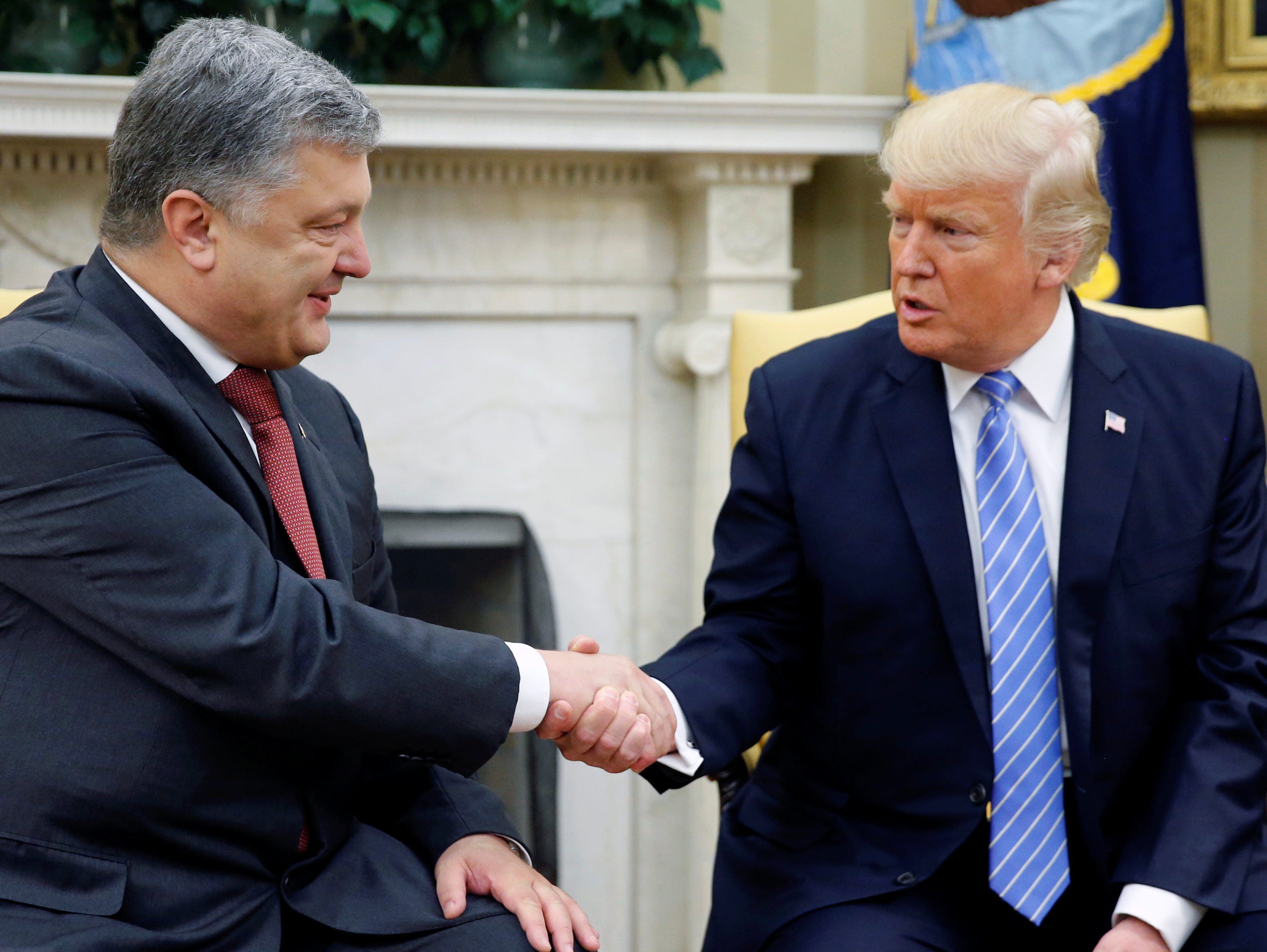
A libel action brought by the Ukrainian President against the BBC over allegations that a secret six-figure sum was paid to arrange talks between him and Donald Trump has reached the High Court.
Petro Poroshenko claims reports by the corporation that Michael Cohen, the US president’s former personal lawyer, received a payment of at least $400,000 (£300,000) to “fix talks” suggested he was “guilty of serious corruption”.
But, at a preliminary hearing in London today, the BBC argued that its online article and News At Ten broadcast contained no implication Poroshenko had “advance knowledge of the payment” and is not defamatory.
Mr Justice Nicklin was asked to rule on the meaning of the reports at the centre of the claim to an “ordinary reasonable viewer/reader”, pending a full trial of Poroshenko‘s libel claim.
After hearing argument from both sides, the judge announced that the meaning of both reports was that Poroshenko “procured or authorised a corrupt payment of $400,000 to be made to Michael Cohen, the personal lawyer of Donald Trump, to extend a brief meeting between the claimant and President Trump… into more substantial talks”.
In his ruling, the judge said “the presentation of evidence is entirely one-sided” and that “the ordinary reasonable viewer/reader would not find any basis on which to exclude the claimant from involvement” in the payment.
Mr Justice Nicklin also refused the BBC’s application for permission to appeal against his ruling.
The BBC reported last May that intermediaries acting for Poroshenko arranged the payment to secure “more than just an embarrassingly brief few minutes of small talk and a handshake” at an already scheduled White House visit in June 2017.
Justin Rushbrooke QC, for Poroshenko, told the court: “For the avoidance of doubt, the ‘story’ [which is] the subject of the BBC News story and online article is completely false.”
Rushbrooke added that there is “simply no room for the viewer or reader to conclude that [Poroshenko] was not directly involved in the secret deal”.
He submitted that the story suggested the Ukrainian president was “so closely interwoven with the setting up of the deal” that it was “just not realistic” for a reader or viewer to think it was arranged “without Poroshenko‘s knowledge”.
Rushbrooke said the story also referred to the fact that Cohen was “under investigation for paying hush money to a porn actress, Stormy Daniels, on Trump’s behalf”.
In December, Cohen was sentenced to three years’ imprisonment in the US for crimes including tax evasion, lying to Congress and arranging illegal payments to silence women who posed a risk to Trump’s presidential campaign.
Rushbrooke argued that the suggestion Cohen “has ‘form’ for involvement in corrupt or improper payment” provided “additional reasons why the ‘story’ of the secret payment for talks must be true”.
But Andrew Caldecott QC, for the BBC, submitted during the hearing that Poroshenko‘s suggested meaning was “wholly strained”.
He argued the broadcast story “does not address at all the question of whether [Poroshenko] personally had advance knowledge of the payment before it was made”, which he said was central to Poroshenko‘s case.
Caldecott added: “The focus is on Mr Cohen’s conduct, the fact that substantive talks were in consequence achieved, and the political developments which followed the talks, of which no complaint is made.”
He submitted that the ordinary reader or viewer would have “no idea” if Poroshenko was involved in the arrangements, adding that the story “simply does not go there”.
Picture: Reuters/Jonathan Ernst
Email pged@pressgazette.co.uk to point out mistakes, provide story tips or send in a letter for publication on our "Letters Page" blog
